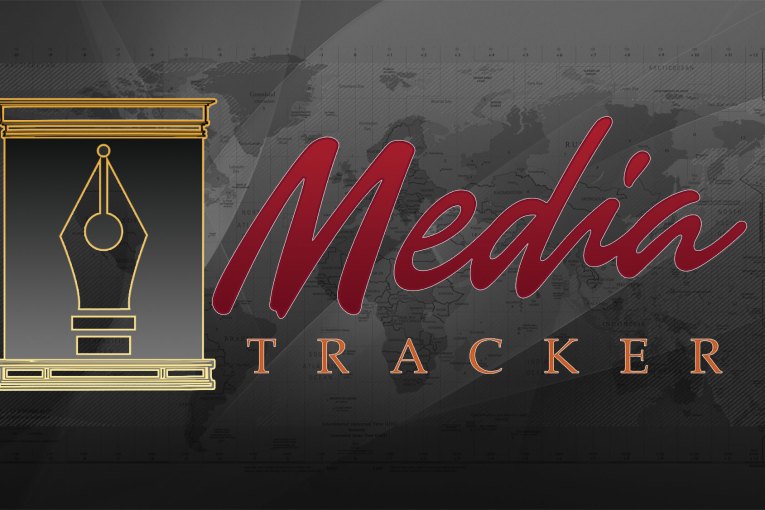
Media Tracker lists the challenges and achievements of the journalists and media organisations worldwide. Here’s a list of journalism at risk stories in the recent month. We would like to thank international media protection organisation and news outlets for their content.
- Jan Kuciak, 27, a Slovak investigative journalist and his fiancée were murdered in the town of Veľká Mača last Sunday. Slovak media reported that Kuciak had received threats from a businessman after publishing stories on his dubious activities. Kuciak had reported the threats but the police wasn’t able to answer his fears. However, in the aftermath of his murder, the police declare the murder due to work-related reasons.
Kuciak worked for the online investigative news outlet Aktuality.sk. The journalist was particularly known for publishing stories on tax fraud and shady real estate deals that involved several Slovak businessmen with close connections to the ruling party. He also wrote stories related to Slovakia as part of the Panama Papers investigation.
(IPI)
- After receiving a two year sentence for his media interviews that criticised the regime’s for restrictions against free press, last week, Bahraini authorities sentenced Nabeel Rajab, President the Bahrain Center for Human Rights (BCHR) and Founding Director of the Gulf Centre for Human Rights (GCHR) to five years imprisonment for comments he made on Twitter criticizing the escalating humanitarian crisis caused by the Saudi-led coalition airstrikes in Yemen, and documenting allegations of torture in Bahrain’s Jau Prison.
Rajab was detained mid 2016 and suffered poor health, solitary confinement and harsh prison treatment amid delayed judicial process. Press freedom organisations around the world are protesting the decision against the journalist and calling an end to the journalist’s plight.
Rajab also has two additional charges against him for op-eds he published from prison in the New York Times and Le Monde, and could face even further jail time if convicted.
(IFEX)
- Two Iranian reporters for the Sufi news website Majzooban Nor, Reza Entesari and Kasra Nouri, were arrested during violent clashes between police and members of a Sufi religious order called the Gonabadi Dervishes. The journalists were beaten and were taken to Imam Sajad police hospital in Tehran shortly after their arrest because their physical condition was worsening. According to some of the sources both Reza and Kasra are now in coma.
According to reports several other employees of Majzooban Nor including Faezeh Abdipour were also arrested but most were released after 48 hours detention. The only independent source of information about the Gonabadi Dervishes, Majzooban Nor has been posting reports and video footage of the violence by police and plainclothes militiamen.
The authorities are yet to comment on the arrests and detail the whereabouts of the detainees.
The authorities have not as yet issued any statement about their arrest and have yet to tell the families where they are being held or what their present condition is.
Gonabadi Dervishes have been persecuted by the regime’s fundamentalists for the past decade and Entesari and Nouri have already been arrested and jailed several times in the past.
(RSF)
- Early February, introduced by Turkey’s ruling Justice and Development Party (AKP), the Parliamentary Planning and Budget Commission passed article 73 of the bill, which would empower the federal TV and radio watchdog RTÜK to regulate and license online broadcasters, including YouTube and Netflix Turkey in the country. Article 73 would allow RTÜK to apply for a court order to block, remove, or otherwise censor content that authorities deem objectionable from a website in a 24-hour period. Websites could, however, then contest the decision.
Transportation Minister Ahmet Arslan, who also oversees Internet regulation, said that only broadcast material that goes “against national security [and the] moral order of the country” would be blocked if the bill becomes law. He however declared that censorship doesn’t exist in Turkey.
Until now, Radio and Television supreme Council; RTÜK, the Turkish state agency for monitoring, regulating, and sanctioning radio and television broadcasts, only regulated conventional radio ad broadcasters in Turkey.
International media organisations are demanding Turkey to scrap the article of a draft bill that would expand Internet censorship in Turkey. They fear that if the new bill becomes law, it would give authorities broad scope to target any Internet broadcasting content from critical news websites to entertainment platforms.
(CPJ)



